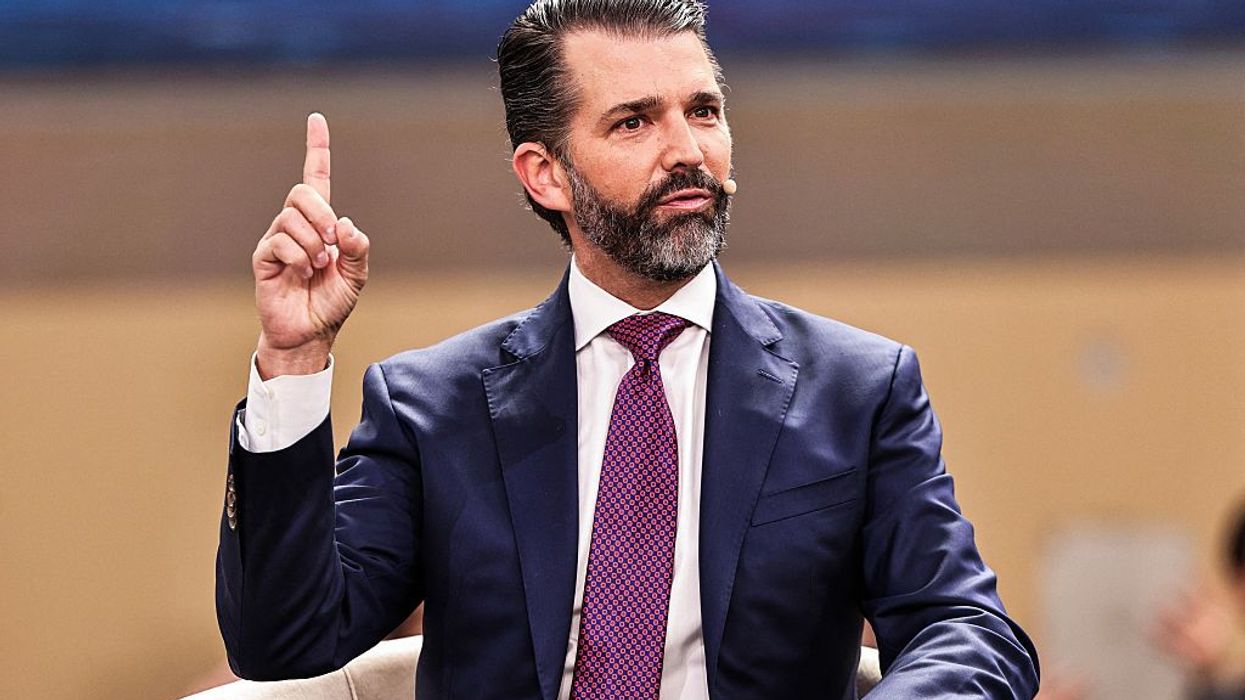March, 17 2015, 01:00pm EDT

For Immediate Release
Contact:
Vernon Haltom, Coal River Mountain Watch, (304) 854-2182
Vivian Stockman, Ohio Valley Environmental Coalition, (304) 553-1962
Lori Ann Burd, Center for Biological Diversity, (971) 717-6405
Adam Beitman, Sierra Club, 202-670-5585
Legal Action Taken to Protect West Virginia From Lax Oversight of Mountaintop-Removal Coal Mining
State Agency’s Failure to Enforce Law Endangers People, Environment
CHARLESTON, W. Va.
Seven local, regional and national groups today filed a formal notice of intent to sue the U.S. Office of Surface Mining for failing to intervene on West Virginia's lax oversight of mountaintop-removal and other destructive surface coal mining -- a state program that has, for decades, allowed the coal industry to ravage the environment, putting people at risk and destroying local communities.
The state's chronically poor oversight has included a persistent failure to conduct inspections meant to protect people and the environment from coal companies that operate outside the law. Out-of-control mountaintop-removal coal mining is linked to epidemics of cancer, cardiovascular disease and birth defects in affected communities. West Virginia has also failed to undertake required assessments to ensure lakes, rivers and drinking-water wells aren't harmed by mountaintop-removal mining and other destructive surface coal-mining practices.
"Citizens' groups have been forced to demand federal enforcement because the West Virginia Department of Environmental Protection has failed to do its job," said Vernon Haltom, executive director of Coal River Mountain Watch. "Our communities and health suffer because the state lets the mining industry get away with polluting at will."
In June 2013, 18 organizations joined a legal petition to the Office of Surface Mining detailing the extensive mining-oversight failures of West Virginia's Department of Environmental Protection. The federal agency has acknowledged that five of the claims have merit, but has failed to take action toward promulgating a federal program. Under the federal Surface Mining Control and Reclamation Act, it is required to step in when a state fails to implement, enforce or maintain its program for overseeing surface mining.
"The situation here could not be more urgent," said Vivian Stockman, project coordinator at the Ohio Valley Environmental Coalition. "Under West Virginia's program, we've seen once-vibrant streams die, devastating floods, and loved ones exposed to toxic blasting dust take ill. Mountaintop-removal coal mining has destroyed communities and threatens to destroy more. We need OSM to take action now."
The notice of intent details the state's failure to complete mandatory inspections evaluating whether a mining operation is complying with the law.
"West Virginia's watchdog on mountaintop-removal coal mining is utterly failing to do its job. During one three-month stretch in 2014, the state failed to conduct 171 required inspections," said Lori Ann Burd, environmental health director at the Center for Biological Diversity. "These chronic failures translate into serious harm on the ground -- because without inspections, the people who live in the state have to rely on the mining industry to voluntarily report things like water-quality violations that threaten public health."
The groups on the notice are the Coal River Mountain Watch, Ohio Valley Environmental Coalition, West Virginia Highlands Conservancy, West Virginia Rivers Coalition, Center for Biological Diversity, National Wildlife Federation, and Sierra Club.
At the Center for Biological Diversity, we believe that the welfare of human beings is deeply linked to nature — to the existence in our world of a vast diversity of wild animals and plants. Because diversity has intrinsic value, and because its loss impoverishes society, we work to secure a future for all species, great and small, hovering on the brink of extinction. We do so through science, law and creative media, with a focus on protecting the lands, waters and climate that species need to survive.
(520) 623-5252LATEST NEWS
Human Rights Group Warns US Gaza Plan Will Impose 'Unlawful Collective Imprisonment' of Palestinians as New Details Emerge
“The design of these proposed cities mirrors the historical model of ghettos,” said the Euro-Mediterranean Human Rights Monitor, which said the US plans to cram 25,000 people into areas smaller than a square kilometer.
Dec 04, 2025
A prominent international human rights organization is warning that the United States' plan for postwar Gaza will impose "unlawful collective imprisonment" on the Palestinian civilians who have survived two years of genocide.
In November, several news outlets reported on the Trump administration's plan to carve Gaza in two: a so-called “green zone” controlled by Israel and a “red zone” controlled by the militant group Hamas.
The US would construct what it called “Alternative Safe Communities” for Palestinians to live in the Israeli-controlled portion of Gaza, which is over half of the territory under the current "ceasefire" agreement.
The New York Times described these communities as "compounds" of 20,000 to 25,000 people, where Israeli officials reportedly argued they should not be allowed to leave.
The initial reporting raised fears that the US and Israel were constructing what would amount to a "concentration camp," where Palestinians would be forced to live in squalid conditions without freedom of movement.
On Wednesday, the Euro-Mediterranean Human Rights Monitor released new details on how Palestinians, currently facing mass displacement from their homes in the portion of the strip not occupied by Israel, would be corralled into the green zone under the US proposal.
The Geneva-based group issued a stark warning about the plan, which it said carried "grave risks, including the effective displacement of Palestinians from their homes and the transformation of large parts of Gaza into closed military zones under the direct control of the Israeli army."
“Entry and exit would be permitted only through security screening, effectively converting these sites into overcrowded detention camps that impose severe restrictions on residents’ freedom of movement and daily life."
Euro-Med's report explains that the transfer of Palestinians would be carried out using "various pressure tactics."
"This is done by creating a coercive environment in the red zone and making access to relative protection and basic services conditional on relocating to designated areas within the green zone, following extensive security screening and vetting," the report says. "This removes any genuine element of consent and places the process squarely within the scope of forced displacement prohibited under international humanitarian law."
It also provides new details on the conditions Palestinians would be subject to once they've arrived: "The plan includes the establishment of 'cities' of prefabricated container homes (caravans) in the green zone, each housing around 25,000 people within an area of no more than one square kilometer and enclosed by walls and checkpoints."
This means these Palestinian cantons would be over three times as densely populated as the Tel Aviv District, the most crowded in Israel, which has about 8,130 people per square kilometer.
"Entry and exit would be permitted only through security screening, effectively converting these sites into overcrowded detention camps that impose severe restrictions on residents’ freedom of movement and daily life," the report continues.
This is not the first proposal to use the promise of safety to lure Palestinians into an enclosed space without the right to leave.
Earlier this year, following US President Donald Trump's call for the people of Palestine to be forcibly removed from the Gaza Strip, Israeli Defense Minister Israel Katz proposed the creation of a massive “humanitarian city” built on the ruins of Rafah that would be used as part of an “emigration plan” for hundreds of thousands of displaced people.
Under that plan, Palestinians would have been given “security screenings” and once inside would not be allowed to leave. Humanitarian organizations, including those inside Israel, roundly condemned the plan as essentially a “concentration camp.”
Euro-Med said that the design laid out in the new US plan "mirrors the historical model of ghettos, in which colonial and racist regimes confined specific groups to sealed areas surrounded by walls and guard posts, with movement and resources controlled externally, as seen in Europe during World War II and in other colonial contexts."
Keep ReadingShow Less
‘Somebody’s Getting Rich’: Senator Suggests Trump Pardon Spree Is Yet Another Grift
"There's clearly a whole group of people around him that are making millions of dollars, and they're handing out favors to folks in the form of pardons," said Democratic Sen. Chris Murphy.
Dec 04, 2025
A Democratic US senator suggested during a television appearance late Wednesday that President Donald Trump's flurry of pardons for fraudsters and other white-collar criminals—from disgraced politicians to former corporate executives—is yet another cash grab concocted by the president's inner circle and lobbyists with ties to the White House.
“My sense is that somebody is getting rich, ultimately,“ Sen. Chris Murphy (D-Conn.) told MSNBC's Chris Hayes shortly after Trump pardoned a former entertainment venue executive who was indicted by the president's own Justice Department over the summer.
"There is a cabal of administration officials and MAGA-friendly lobbyists that are in league together," Murphy continued. "They all huddle together at these elite restaurants and clubs in Washington, DC, and they likely hatch deals in which, if somebody pays a MAGA-affiliated lobbyist a couple hundred thousand dollars, then maybe you’ll be able to get a pardon.”
"There's clearly a whole group of people around him that are making millions of dollars, and they're handing out favors to folks in the form of pardons in order to make sure that they get their pockets lined," the senator added. "That's just, like, bread and butter corruption."
Watch:
The pardons Trump is handing out are a huge, growing scandal that not enough people are talking about. This is a money making operation - for for Trump, his family, his crypto pals, and the Trump-affiliated lobbyists and grifters who the pardon seekers pay. pic.twitter.com/FwLRyHDMqN
— Chris Murphy 🟧 (@ChrisMurphyCT) December 4, 2025
Since the start of his second term, Trump has used his pardon power to rescue well-connected executives and political allies from accountability, invariably claiming—without evidence—that the Biden administration manufactured the charges.
Many of those pardoned have been accused or convicted of white-collar crimes; "fraud" appears 57 times on the Justice Department page listing the names and offenses of those who have received clemency from the president this year.
Trump's willingness to unthinkingly pardon fraudsters has spawned a lucrative business for lobbyists and consultants linked to the administration. NBC News reported earlier this year that "two people directly familiar with proposals to lobbying firms said they knew of a client’s offer of $5 million to help get a case to Trump."
Changpeng Zhao, the billionaire founder of the cryptocurrency exchange Binance, reportedly had a lobbyist working to secure his pardon, which came in late October.
"I don't know who he is," Trump said when asked about the decision, adding that "a lot of people asked me" to pardon Zhao, who pleaded guilty in 2023 to "failing to maintain an effective anti-money laundering program."
Trump also made history with what's believed to be the nation's first-ever presidential pardon of a corporation: HDR Global Trading, the owner and operator of crypto exchange BitMEX. The company was sentenced earlier this year to a $100 million fine for violating anti-money laundering laws.
In a report published in September, Murphy detailed how corporate pardons "are happening throughout the federal government, in the form of rescinded orders, dropped cases, and the first-ever presidential pardon for a corporation." The watchdog group Public Citizen estimates that the Trump administration has halted or dropped more than 160 corporate enforcement cases since the start of the president's second term.
"Corporate pardons are just one of the ways that Trump is replacing democracy and rule of law with authoritarian power and rule by personal favor," Murphy wrote in his report. "If we are going to save our democracy, we need to act now."
Keep ReadingShow Less
Yet Another Trump Jr.-Backed Company Receives Massive Pentagon Deal
One legal expert said the contract "falls under the cloud of conflicts of interest we have seen throughout this administration."
Dec 04, 2025
For the second time this year, a little-known company backed by Donald Trump Jr. has scored a major contract with the US Department of Defense.
The Financial Times reported on Wednesday that Vulcan Elements—a tiny startup of 30 employees that specializes in producing rare-earth magnets used in drones, radars, and other pieces of military equipment—has scored a $620 million loan from the Pentagon as part of "a $1.4 billion deal to increase the supply of magnets for industries alongside partner ReElement Technologies."
Vulcan has received funding from 1789 Capital, a venture capital firm founded by pro-Trump donors in 2023 that brought Trump Jr. in as a partner last year. According to the Financial Times' analysis, "at least four of 1789’s portfolio companies have won contracts from the Trump administration this year, amounting to more than $735 million."
Revelations about the Vulcan Elements contract come just weeks after the Florida-based drone startup Unusual Machines, in which Trump Jr. has held a $4 million stake, received a contract from the US Army to manufacture 3,500 drone motors. Additionally, reported the Financial Times, the Army indicated that it planned "to order an additional 20,000 components" from the Trump Jr.-backed firm next year.
As Popular Information reported earlier this year, Unusual Machines first brought Trump Jr. on as an adviser just weeks after his father won the 2024 presidential election, even though he had "no notable experience with drones or military contracting."
A Popular Information report published Thursday noted that "both Vulcan CEO John Maslin and Unusual Machines CEO Allan Evans said that Trump Jr. played no role in securing the government contracts," although the report flagged statements by Trump Jr. made earlier this year about helping to screen candidates for key positions in the Pentagon who would be in position to reward companies he's backing without him having to make a direct appeal.
Kedric Payne, general counsel at the Campaign Legal Center, told the Financial Times that that the government deals scored by Trump Jr.-backed companies look ethically dubious even if the president's son didn't directly use his influence to procure them.
“Presidents are expected to avoid even the appearance that they are using their office to financially benefit themselves or their family,” he said. “While we do not know for certain if, or how, the president may have influenced this loan, it falls under the cloud of conflicts of interest we have seen throughout this administration.”
Keep ReadingShow Less
Most Popular


